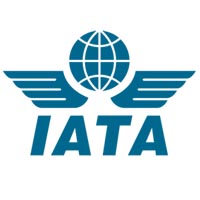With the fame of traveling abroad comes the baggage of leftover foreign currency. The process of collecting coins and bills can be quite nostalgic and, to some, can come as a form of emergency cash. This further gets ignored and put in drawers—what’s even worse, it goes to waste. Instead of discarding foreign currency, use these effective methods that are efficient and reasonable for leftover currency use.
Why Leftover Currency is Common.
While traveling, cash is almost always necessary. Although it’s advantageous to have cash, relying on it for everything is never a beneficial idea, nor is doing the complete opposite and overestimating. Don’t avoid cash but rather properly manage how much, when, and where you should spend. In a different scenario, using a credit card is more convenient for multiple small purchases. Carrying out these errors frequently leads people to have leftover cash at the end of the trip, which is troublesome.
Exchanging at the airport.
While traveling, you almost always need foreign currency, making money exchange a necessity. Using kiosks to deposit cash provides a sense of security, but only until you attempt to cash out with a different currency. Kiosks can be less favorable due to higher fees. To avoid high fees at kiosks, limit the amount of currency you exchange at the airport. Alternatively, exchanging money at vendors or shopping malls can be a beneficial idea, as they tend to be convenient and offer surcharge protection.
Treat Yourself at Duty-Free Stores
Duty-free stores are an inexpensive option to spend any remaining currency before departing. Whether it’s a souvenir, some snacks, or toiletries, these shops allow for minimal expenditure. While pricing for various goods might change, this holds a wonderful way to expend spare change and dollars.
Support a Charitable Organization
Many international airports have such programs that enable foreign travelers to donate money for social work. Initiatives like Change for Good from Unicef encourage those who are about to fly to donate their unwanted leftover money for activities like education and relief work after any calamity strikes. Donating to various charitable funds makes your travels more meaningful by supporting a good cause.
Alternatively, if you’d prefer to exchange currency directly with others, consider these options.
Exchange with other passengers.
If you have a friend who is traveling to the same city, then exchanging leftover currency with fellow travelers can be a practical solution. Also, through the internet and travel forums, you can find people who want to instantly exchange money. This can also help both parties avoid trading fees and exchange rate fluctuations.
Create a Multicurrency Wallet
If you travel frequently, using services like Wise or Revolut to create a multicurrency wallet allows you to store multiple currencies digitally, eliminating the need for physical cash and offering a cost-effective solution for future trips.
Leftover Money Handling
The best solution to leftover currency is preventing it from even occurring in the first place. Here is how you do this:
Study Payment Customs: Determine whether your destination relies more on cash or the card system.
Establish Daily Limits: Cash is typically withdrawn in fixed amounts, so avoid withdrawing too much at once.
Use Applicable Payment Methods: To lessen reliance on cash out while abroad, use international debit or credit cards that charge low fees when spending.
Conclusion
There is no need to concern yourself with leftover money from your trips. Since it has so many uses, you could use it to prepare for your next trip, donate it, or give it to a charity. If you’re aiding a non-profit or other globetrotter or simply spending money for ease, it does not matter because of the many ways your money can be of use when the trip is over.


